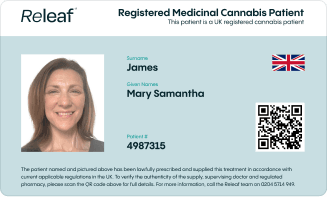The cannabis sativa L. plant has a fascinating and deep-rooted history here in the United Kingdom. A profoundly important and versatile plant in terms of both medicinal application and use in the industrial sector, it has been utilised for various purposes throughout the ages. Without hemp, our country's past would have been quite different indeed.
The long-fibred cannabis variety was grown as an agricultural crop, playing an essential role in Britain's naval history, and chosen as the main textile for both sails and rope due to its lasting durability, rapid growth, and resistance to rot. During the reign of King Henry VIII in the mid-1500s, the English Navy relied heavily on hempen fabric, making it a vital commodity for the protection and advancement of our nation. To ensure a steady supply, landowners with more than 60 acres of farmable land were mandated to cultivate at least one acre of hemp. Later, Queen Elizabeth I not only increased the quotas but also imposed stricter penalties (a £5 fine for those who did not comply – the equivalent of more than £1,140 in today's money) to ensure that England's naval supremacy remained intact.
But, long gone are the days when anyone can grow their own hemp or cannabis. The start of the 20th century saw tighter regulations, and by 1928 cannabis was classified as a "dangerous drug" in the UK. Even with its once-esteemed versatility and significance to industry, cannabis began to be shunned. And this, in fact, was largely due to the threat that cannabis and hemp crops posed to the cotton industry in the United States, with the fear that hemp would replace cotton in clothing and textiles.
The propaganda and stigmatisation continued to be pushed by the mainstream media, and by 1971 cannabis was classified as a Class B drug, carrying severe penalties for those caught in possession or supply. This negative portrayal and the "war on drugs" continued into the 21st century, despite an ever-growing body of clinical evidence highlighting the benefits of medical cannabis slowly coming into the public and political consciousness.
Thankfully, in the past fifteen or so years, we have seen a global shift in attitudes towards cannabis. In 2001, Portugal became the first country in Europe to decriminalize all drugs, including cannabis. And more recently, countries such as Canada and Uruguay have fully legalized the plant, with many others following suit in allowing for medicinal application.
In the United Kingdom, we are also seeing progress being made towards a more sensible, compassionate, and logical approach to cannabis laws. In today's article, we will take a deep dive into the current laws and regulations concerning cannabis in the UK and lay out all the relevant information surrounding the plant and its application for medicinal purposes. From the classification of cannabis to the legalities of cultivation, and where we predict the UK's cannabis laws to be heading in the future, this guide will give you a comprehensive understanding of the current climate and what may lie ahead.
The current laws governing recreational cannabis in the UK
As previously mentioned, cannabis is currently classified as a Class B drug in the UK. This means that possession of any amount of cannabis can result in an unlimited fine and up to 5 years in prison, while the cultivation or supply of cannabis can lead to an unlimited fine and up to 14 years in prison. The Sentencing Council of England and Wales suggest that a custodial sentence for cannabis cultivation start for seven plants or more.
It is worth noting that the enforcement of these penalties is not always stringent. In cases where individuals are found in possession of a small amount of cannabis, typically less than one ounce (28 grams), law enforcement may opt to issue a warning or an on-the-spot fine if it is determined to be for personal use. There are also alternative measures in place for offenders who may be grappling with addiction or mental health challenges.
With that said, it somewhat of a lottery for individuals who are actually prosecuted with small scale cannabis offences. While the majority of figures released show a stark decline in individuals being charged and prosecuted for cannabis offences when the amount is less than one ounce, this is not the case for all postcodes. According to Home Office data from 2018, a total of 15,120 individuals in England and Wales faced prosecution for cannabis possession. Fast-forward to 2020/21, and it is revealed that cannabis possession constituted 63% of all drug-related offences in England and Wales. These statistics shed light on the persistent issue of cannabis-related legal actions in the two countries.
Some may say that this is a clear indication of the UK's harsh approach to cannabis in comparison to other European nations, and a waste of both taxpayers' money and time for law enforcement. Others argue that cannabis is a gateway to more harmful substances, but this notion has been heavily debated and debunked in recent years. .
There is also a suggestion that there are racial and socio-economic factors at play, due to the significant discrepancies in convictions between different regions. Numerous studies and reports have highlighted the disproportionate policing of cannabis against black people, who are half as likely to use drugs than white people, eight times more likely to be stopped and searched, but no more likely to be in possession. In 2021, data analysis showed that black people were 12 times more likely to be charged for cannabis offences.
Though cannabis remains illegal for recreational use, decisions around enforcement and prosecution are often dependent on a range of variables. The criminal history of the individual, the amount of cannabis found, the location, and the circumstances of its consumption are all considered when determining penalties for possession. This is not the case for more serious offences, such as cultivation and supply, where the full force of the law is typically enacted.
The case for medical cannabis in the UK
While recreational cannabis remains illegal in the UK, there have been significant changes in recent years regarding access to medical cannabis.
In November 2018, medical cannabis finally became available for patients here in the UK, after decades of lobby from patients and advocacy groups. Following high-profile cases of children such as 5-year-old Alfie Dingley and 12-year-old Billy Caldwell, both of whom suffer from a rare form of drug-resistant epilepsy. Their stories gained widespread public sympathy and resulted in a dramatic change of heart from the UK government.
But what do the laws say?
Well, in short, medical cannabis can be prescribed by doctors who are on the General Medical Council Specialist Register here in the UK, but only under extremely strict conditions if accessed through the NHS. The three categories of patients who may be prescribed medical cannabis through the NHS are:
- Those suffering from rare, severe forms of epilepsy
- Those with MS (multiple sclerosis)
- Those experiencing nausea and vomiting caused by chemotherapy
Thankfully, private clinics have emerged, offering a more accessible route to medical cannabis treatment. Private clinics can prescribe medical cannabis to patients with a wider range of conditions, including chronic pain, anxiety, and PTSD. However, this does come at an additional cost for the patient – which is why organizations, such as Releaf, strive to make access to medical cannabis affordable and attainable for all.
The prescription of medical cannabis is at the discretion of the prescribing doctor, as they are required to decide whether it is appropriate for their patient's unique circumstances. Any health concern is legally allowed to be prescribed medical cannabis, as long as the doctor believes it is necessary and appropriate.
CBD products containing less than 0.2% THC are also legal in the UK, but there are strict regulations surrounding their sale and advertising. As a result, many CBD products are promoted for purchase as food supplements rather than medicines.
The future of cannabis laws in the UK
The debate around cannabis laws in the UK is ongoing, with advocates calling for further reform, especially when it comes to, and it is important to continue raising awareness and advocating for reform. The future of cannabis laws in the UK may be uncertain, but one thing is for sure – there is an obvious need for increased access to medical cannabis through the NHS than what is currently afforded. With increasing evidence supporting the medical benefits of cannabis for a wide range of conditions, and high-profile cases bringing attention to the issue, there is hope for continued reform in the future. Efforts are being made to expand access to medical cannabis through the NHS, and more research is being conducted on its potential benefits.
The same can be said for the legality of recreational cannabis. While no one is 'holding their breath' for full legalisation anytime soon, there are ongoing discussions and debates within the government to explore different approaches to cannabis laws in the UK. It is clear that change is happening, albeit slowly, but with the sheer amount of taxpayer money spent on enforcing current laws and the growing evidence for the medical use of cannabis, it is only a matter of time before we see further progress in UK cannabis laws. As advocates and supporters continue to push for change, we can only hope for a more progressive approach soon.
Releaf understands that finding a doctor who is registered to prescribe medical cannabis can be difficult. That's why we offer online consultations with our specialist doctors, as well as a unique medical cannabis card for extra protection and access to the treatment you need. If you're interested in learning more about our services or getting access to medical cannabis treatment, get in touch and one of our team members will be happy to help.





